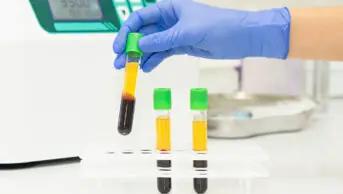
Shutterstock.com
Open access article
The Royal Pharmaceutical Society has made this article free to access in order to help healthcare professionals stay informed about an issue of national importance.
To learn more about coronavirus, please visit: https://www.rpharms.com/resources/pharmacy-guides/wuhan-novel-coronavirus

Source: Shutterstock.com
Critically ill patients were more likely to receive corticosteroids, such as hydrocortisone or prednisolone, but corticosteroid treatment was associated with a two-fold increase in the risk of death
The use of corticosteroids in coronavirus infections is associated with increased risk of death and side effects such as bacterial infections and hypokalaemia, research published in the Journal of Infection (16 April 2020) has shown.
The team carried out a systematic review and meta-analysis including 15 studies published since 2002 and a total of 5,270 patients infected with SARS-CoV, MERS-CoV or SARS-CoV-2.
They found that critically ill patients were more likely to receive corticosteroids, such as hydrocortisone or prednisolone, than those with less severe infections (risk ratio [RR] 1.56; 95% confidence interval [CI] 1.28–1.90). However, corticosteroid treatment was associated with a two-fold increase in the risk of death (RR 2.11; 95% CI 1.13–3.94), higher rates of bacterial infection (RR 2.08, 95% CI 1.54–2.81) and hypokalaemia (RR 2.21; 95% CI 1.07–4.55), as well as longer hospital stays.
The researchers said that although corticosteroids were commonly used to treat severe pneumonia, there was debate as to whether they were suitable for COVID-19-infected patients.
“Corticosteroids should be used with caution in the treatment of COVID-19 patients: corticosteroids are not recommended for patients with mild conditions, and moderate corticosteroids can be used in patients with severe conditions to suppress the immune response and reduce symptoms,” they concluded.
References
[1] Yang Z, Liu J, Zhou Y et al. J Infect 2020. doi: 10.1016/j.jinf.2020.03.062


